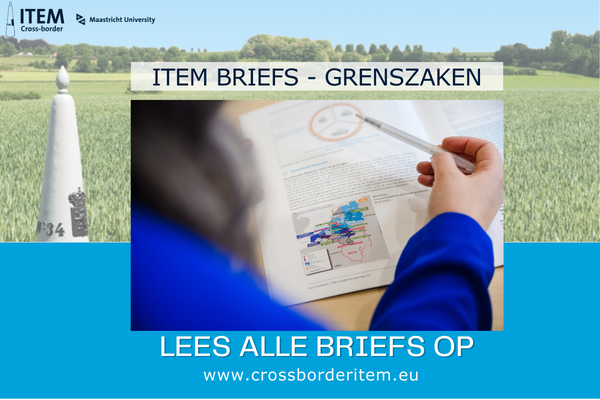
Susanne Sivonen
Researcher
While the Dutch government focuses on limiting internationalisation in higher education (see ITEM Briefs no. 6), the EU Commission is clearly committed to building a European Education Area. On Wednesday 27 March 2024, the European Commission published a higher education package, which consists of three initiatives aimed at promoting deeper transnational cooperation between higher education institutions across the EU. The package includes:
- A communication on a blueprint for a European degree;
- a proposal for a Council recommendation on improving quality assurance processes and automatic recognition of qualifications in higher education; and
- a proposal for a Council recommendation to make academic careers more attractive and sustainable
Based on a common framework and jointly defined criteria at European level, Member States would, on a have the possibility, on a voluntary basis, to award, in cooperation with a group of universities across Europe at national, regional or institutional level to award a joint European degree. Such a European (joint) degree would promote the visibility and recognition of skills and competences in Europe and facilitate mobility for learning and professional purposes.
The proposal could have positive results for citizens who are highly mobile in cross-border regions: they live, work and/or study across national borders. Currently, the limited recognition of diplomas and professional qualifications is an obstacle to the mobility of students and professionals. However, it is noteworthy that such automatic recognition is already should be achieved through existing instruments such as the BolognaProcess and the Lisbon Treaty. However, these instruments have not yet been fully and effectively implemented. In fact, the Benelux countries have found their own solution and signed an agreement on mutual recognition of qualifications. This raises the question: what added value does the ‘European title’ have over existing instruments? The answer may lie in examining the common titles that the proposal aims to address.
Currently, different national legislations may not allow a joint title to be awarded in cooperation with foreign higher education institutions. There may also be conflicts in legislation regarding the design and implementation of a joint title, particularly with regard to aspects such as quality assurance, curriculum and tuition fee arrangements. With a European title, the proposal thus aims to make it easier for universities from different countries to cooperate and develop innovative joint programmes leading to a joint title. The advantage of a combined title lies in the joint curriculum developed by higher education institutions in several member states. By participating in a joint programme, students can acquire a diverse set of competences and skills, giving them more opportunities and making their qualifications more transparent for employment in Europe’s (cross-border) labour markets.
The European (Joint) Degree has been in the making since 2022. In that year, the European Commission published several pilot projects to test the criteria of a ‘European degree label’. ITEM is participating in one of these pilots, the FOCI (Future-proof Criteria for Innovative European Education) project, a joint effort of three university alliances: YUFE, EPICUR and ECIU. The European Commission may be in a hurry to introduce the European degree because of the upcoming European Parliament elections in June, having adopted the European degree proposal before the pilot projects are officially completed.
The preliminary findings of the FOCI project suggest that in order to ensure that the European degree (label) initiative remains relevant and future-proof in the long term, it should broaden its scope to include additional innovative forms of higher education, such as micro-credentials, rather than focusing only on full higher education programmes. Other key questions about the Commission’s initiative relate to the purpose of such a European title (label). This question was also asked during the Commission’s press conference: What does the European title offer that established joint diplomas do not?
The commissioners (Margaritis Schinas, Iliana Ivanova) gave a short answer: “It is a common European diploma”. The emphasis thus seems to be on strengthening a European identity in education. However, this response brings to mind a concern expressed during the public consultations: The European title should not lead to a dichotomy within Europe, with other joint diplomas or national diplomas without the distinction “European title” being seen as diplomas of lesser value or quality.
The European Commission plans to introduce the proposal gradually. The path towards a European title would begin with a preliminary European label that would be issued for joint degree programmes that meet common European criteria, through a certificate that students would receive along with their joint degree. Finally, member states would work to integrate the European title into their national or regional legislation. However, significant efforts are still needed to achieve this final result. While the European Commission emphasises the voluntary nature of the European degree, it should be kept in mind that the organisation of higher education remains the competence of Member States. Without the trust and support of Member States, the European degree risks being nothing more than a label, without the substantive impact envisaged by the European Commission.
The European Commission will then discuss the higher education package with the Council of the EU and higher education stakeholders. In 2025, the Commission plans to launch a ‘European degree policy lab’ and ‘European degree pathway projects’ to develop guidelines and a pathway to a European degree.

